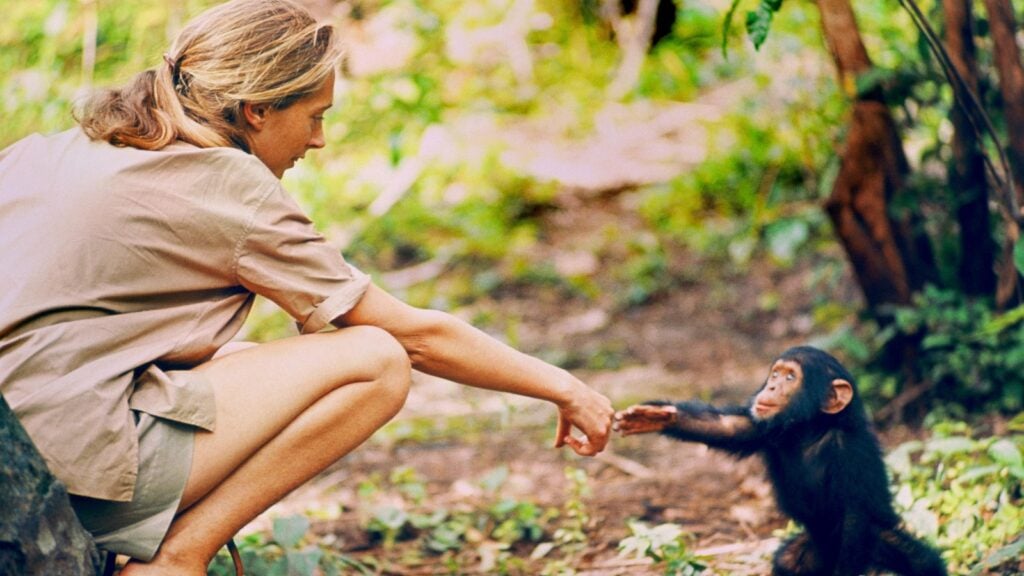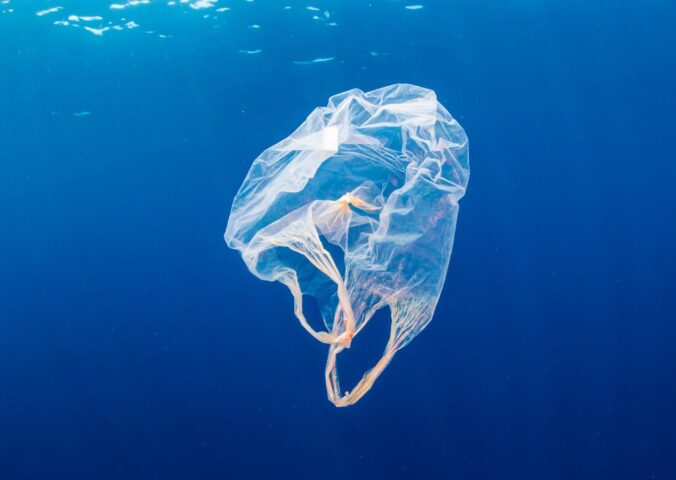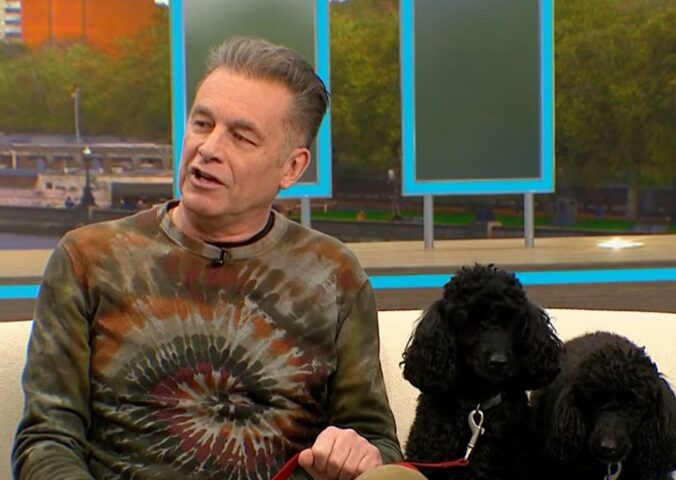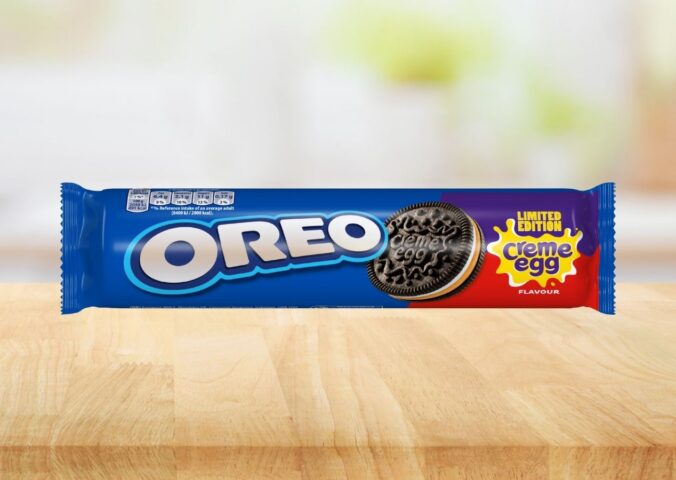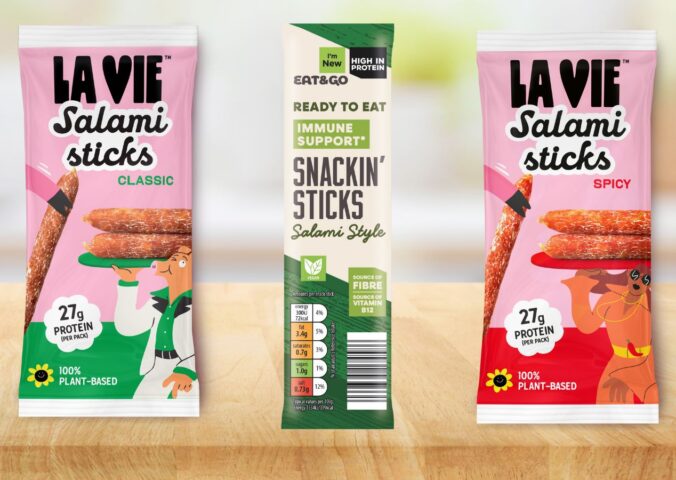In an exclusive interview, Dame Jane Goodall sat down with Plant Based News’ own Robbie Lockie to discuss her new book. The renowned ethologist – referring to the study of animals in their natural habitat – delved into the food system, animal suffering, and hope.
Goodall penned the new release, called The Book of Hope: A Survival Guide for Trying Times, alongside Douglas Abrams, the internationally bestselling co-author of The Book of Joy.
In The Book of Hope, the pair take an intimate look at humankind’s complex relationship with planet Earth. This includes the ways in which humans have wronged the planet, but also, and importantly, the ways in which we can start making amends.
According to Goodall, her new book has arrived at the right time.
“There’s no denying the fact that, yes, indeed, we’re in very, very dark times, politically, socially, and especially environmentally. And we’ve faced the challenge of climate change and loss of biodiversity. These two are linked,” she said to Lockie. “And of course, we brought this on ourselves by our absolute disrespect of the natural world, just as we brought this pandemic on ourselves by our disrespect of animals. So where lies the hope?”
“I think the reason that I find this book comes out at the right time is because if we lose hope, then we’re doomed. Because if you lose hope, why bother?” the anthropologist adds.
And because, as Goodall drives home, “every single one of us can make some impact on the planet every single day. And if all those who can make wise choices, ethical choices, in how they live, what they buy, what they wear, what they eat, especially what they eat, then, you know, we start moving in the right direction.”
Four Reasons for Hope
In The Book of Joy, Goodall flags her “Four Reasons for Hope”: The Amazing Human Intellect, The Resilience of Nature, The Power of Young People, and The Indomitable Human Spirit.
The first reason is the acknowledgement that humankind has incredible potential, she says. Speaking about “the Amazing Human Intellect,” Goodall explains, “Okay, it’s got us into a mess. We’ve created atomic bombs and nasty weapons of war, but we’ve also sent people onto the moon.”
So while the world’s human population is “destroying its only home,” it also holds the capacity to invent and innovate ways to clean it up, she adds.
Human intellect could be considered an unmatched force, but people still have a lot to learn from non-human animals, Goodall says.
Animal personalities and emotions
“When I went to Cambridge, I was told by the erudite professors that after my years with chimps, I shouldn’t be talking about them as having personalities, minds, or emotions. Those were unique to us. I shouldn’t have empathy with my subject. To be a good scientist, you must be coldly objective,” she said. “But I’d learned as a child, that that was absolutely not true,” Goodall adds, and refers to her dog, Rusty, who sat behind her during the interview.
“I didn’t argue with the professors. I just went on quietly describing the amazing behavior of the chimps. How they care for each other. How they hug and kiss. How they swagger. How they compete for dominance rather like male human politicians.”
And, they harbor a “darker side,” Goodall notes, “but also show love and compassion.”
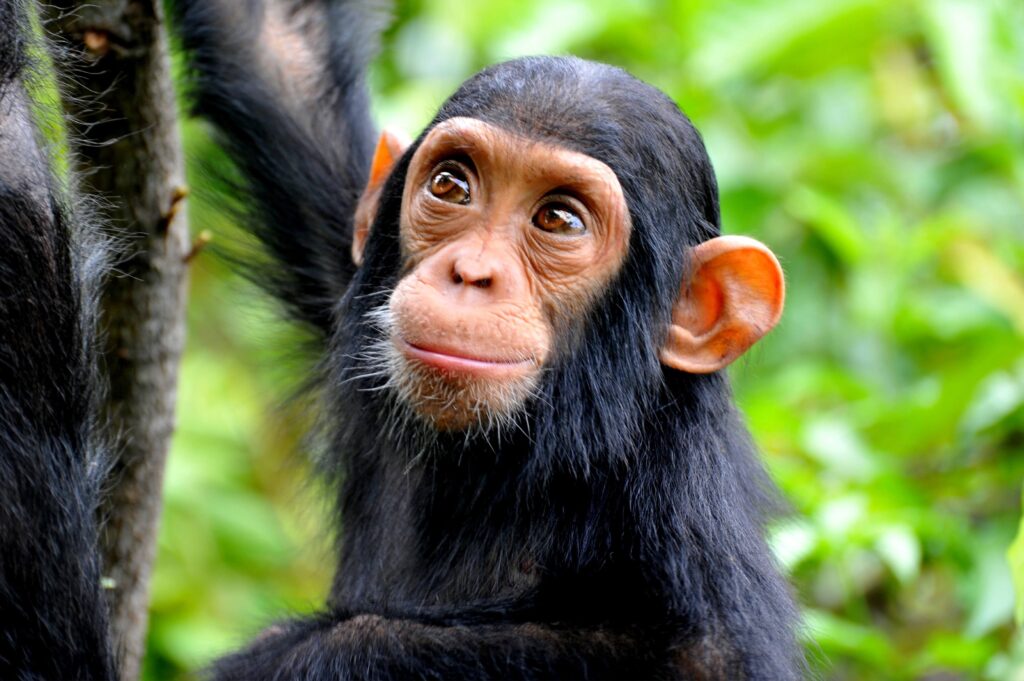
But it’s not just chimpanzees who are “sentient, feeling, emotional beings with their own individuality,” the author says. “You can stretch right down, and now science is becoming open to these things. You can actually study animal emotions.”
“And the tragedy of course is that billions of animals are in these awful factory farms. And it’s not just the unbelievable cruelty of sentient beings – unbelievable cruelty. But it’s also the fact that it’s trashing the environment, destroying habitats in order to grow the grain to feed them. Masses of fossil fuel to get the grain to the animals, the animals to be slaughtered, the meat to the table,” Goodall says.
Intensive factory farming is also to blame for vast amounts of water use and greenhouse gas emissions, she highlights.
The potential of humanity
Through her work, especially her Roots & Shoots youth program, Goodall aims to illuminate “what humanity is all about.” And this, Goodall says, transcends any relevance of one’s race, culture, or religion: “the fact we’re all human beings.”
“And then having realized that, well, you know, we are animals too. We are animals.”
It is this knowledge that can inspire the masses to come together for the greater good, and direct any anger about the state of the planet into “positive action.”
“To me, hope is everything … It’s ultimately going to be up to us,” the scientist says.
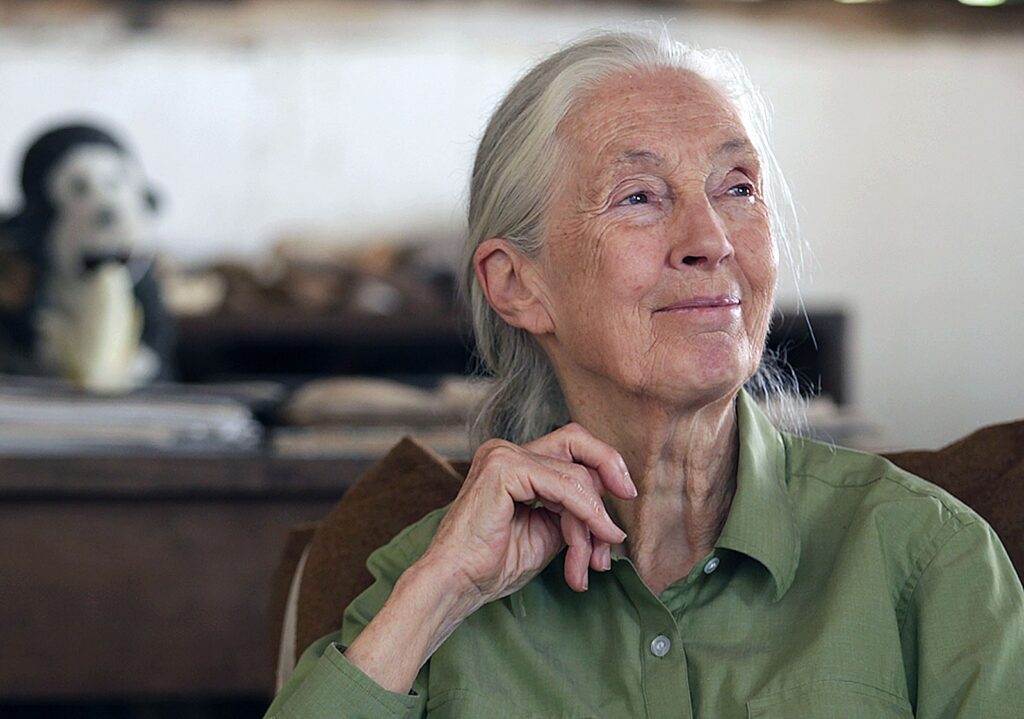
“I want [people] to realize that they as an individual, do matter. I can’t say exactly what people should think and act and do,” Goodall explains. “But one thing we all have to do is to try and leave as light and ecological footprint as we can. To think about how we use energy, to think about if we could walk or use a bicycle. To think about what we buy and wear, and how it was made. And consumer pressure really is making a difference to many big businesses.”
She concludes: “I truly think it’s when head and heart can work together that we can obtain our true human potential. Each of us in our own way, and in our own sphere.”
Those interested can learn more about Jane Goodall’s The Book of Hope: A Survival Guide for Trying Times here.
—
If you purchase something through a link on our site, Plant Based News may earn a commission, which helps us to provide our free services to millions of people each week.
